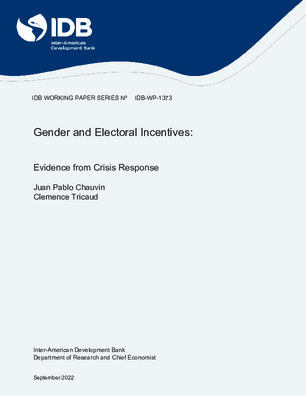Gender and Electoral Incentives: Evidence from Crisis Response
Date
Sep 2022
While there is evidence of gender differences in leaders behavior, less is known about what drives these gaps. This paper uncovers the role of electoral incentives. Using a close election regression discontinuity design in Brazil, we first show that female mayors handled the COVID-19 crisis differently over the year 2020, which ended with new municipal elections. We find that having a female mayor led to more deaths per capita at the beginning of the pandemic – a period characterized by uncertainty about the severity of the threat – but to fewer deaths per capita later in the year – a period where this uncertainty was reduced. We provide additional evidence that female mayors were less likely to close non-essential businesses early on, and more likely to do so at the end, and that residents in female-led municipalities were more likely to stay at home in the weeks surrounding the election. We then show that these results can be rationalized by a simple political agency model where politicians seek re-election and where voters assess female and male politicians actions differently. Consistent with this interpretation, we show that the gender differences we find are driven exclusively by mayors who were not term-limited and thus allowed to run for re-election, and that the effects are stronger in municipalities with greater gender discrimination. Taken together, the results suggest that female and male leaders face different electoral incentives and adapt their policy decisions to voters expectations.




